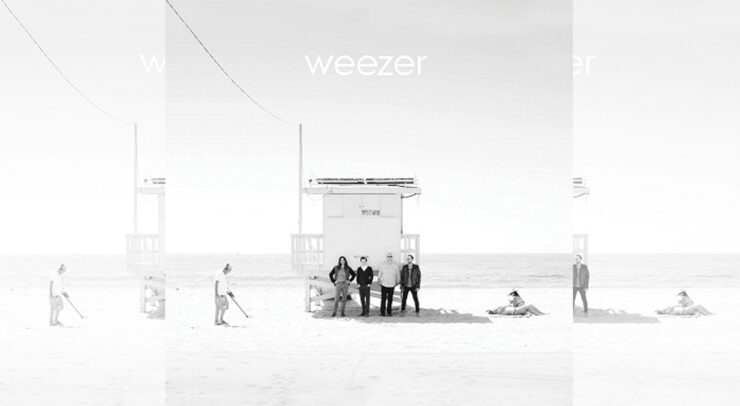More than two full decades after the release of their debut album, and following a series of lackluster releases throughout the mid-2000s, Weezer has abruptly changed direction to create one of the best records of their career.
It’s not uncommon to hear Weezer referred to as “the best band with the worst discography”—a label the band hasn’t openly dismissed. After their quick rise to mainstream success with their self-titled debut record and the subsequent critical takedown of their experimental, dark sophomore LP Pinkerton—an album now heralded as one of the best records of the 90s—Weezer dramatically changed their formula, moving their sound closer to that of the pop-rock scene evolving on MTV.
Despite this success, the band ultimately found itself spiralling. While Weezer still managed to churn out hit after hit, their albums suffered, and much of the raw songwriting that led Weezer to their success had vanished.
However, something changed in 2014 when Weezer frontman Rivers Cuomo locked himself in a woodland cabin for several weeks, and the band returned with their strongest record in almost a decade, Everything Will Be Alright in the End. Through reconciling the band’s pop direction with their punk rock roots, Everything felt like a return to form for the group.
Weezer (2016), or The White Album, picks up where Everything Will Be Alright in the End left off, and continues to build upon the progress by delivering one of the most consistently strong records in the band’s massive discography. Opening with a trio of instantly classic, alt-rock anthems, the LP immediately exemplifies all of Weezer’s strengths, both reassuring long-time fans and creating new ones.
On the album opener “California Kids”, Cuomo seems at his rawest and most emotional since the Pinkerton era, his lyrics heartbreaking and nostalgic. “You don’t have to have the answers, don’t you worry,” he sings, projecting his anxieties upon the listener.
Similar themes of darkness are found throughout the album, buried under catchy hooks and blaring guitars. “King of the World”—which features one of the catchiest verses Weezer has ever recorded—sees Cuomo singing about the abuse his wife suffered at the hands of her parents as a child.
Although darkness manages to creep into the far corners of Weezer, the record finds a way to remain light hearted and incredibly fun. The heavy guitar on “California Kids” smoothly transitions into the poppy piano found on the forward looking track “Wind in Our Sail”, a track where Weezer sounds polished to the point of absolute perfection.
Weezer is a Swiss Army knife, providing an incredible display of the band’s versatility. “L.A. Girlz” has Cuomo singing Sinatra-style over intense guitar riffs, “Thank God For Girls” is as close to an absolute banger as rock music can provide, and the track “Do You Wanna Get High?” is a direct callback to the classic sounds Weezer established with Pinkerton.
Cuomo knows the band can’t create another Blue Album, and he isn’t interested in trying. The music industry has changed dramatically—the MTV and Rolling Stone that once propelled their band to success have lost their relevance, and the likelihood of a rock band penetrating a Top 40 ruled by pop icons like Justin Bieber or Taylor Swift is unlikely.
Instead, the band seems free of the pressure to create another mainstream radio hit, instead channeling their creative energy into what they do best—being Weezer. That is, writing painfully honest music channeled through a sound and a style that, after taking the better part of two decades to perfect, only they could make. Weezer is back, Weezer is at their best, and Weezer is looking towards the future.





